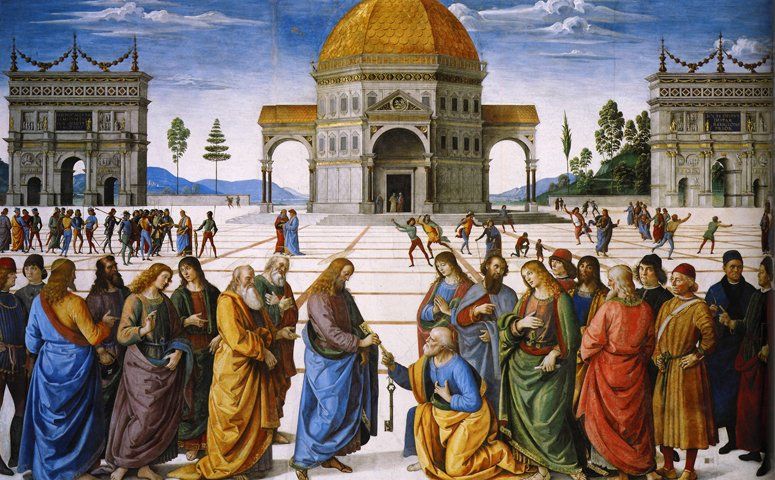Message of Abbot Paul - Sunday 27th August 2023
Abbot Paul • August 27, 2023

Were today not a Sunday, we would be keeping the feast of St Monica, the mother of St Augustine of Hippo. She had a profound influence on the life and conversion to the Christian faith of her son, who was to become one of the greatest theologians the universal Church has ever known. We greet all those who bear the name of Monica and ask that their prayers and the prayers of all mothers for their children be answered.
Yesterday we had the immense joy and privilege of hosting the Coptic Orthodox community for the funeral service of one of its most loved and esteemed members, Mrs Eman Tawfik. We pray for the repose of her soul that she might see the light of God’s presence in the kingdom of heaven and that God, in his merciful love, will bless and console her loved ones who mourn her departure from this life.
Today’s Gospel reading from Matthew, (Mt 16: 13-20), recounts that pivotal moment at Caesarea Philippi, when Peter, in the name of the Twelve, declared his faith in Jesus as “the Christ, the Son of the living God.” Let’s read the text slowly, with attention and devotion. “When Jesus came to the region of Caesarea Philippi he put this question to his disciples, ‘Who do people say the Son of Man is?’ And they said, ‘Some say he is John the Baptist, some Elijah, and others Jeremiah or one of the prophets.’ ‘But you,’ he said ‘who do you say I am?’ Then Simon Peter spoke up, ‘You are the Christ,’ he said, ‘the Son of the living God.’ Jesus replied, ‘Simon son of Jonah, you are a happy man! Because it was not flesh and blood that revealed this to you but my Father in heaven. So I now say to you: You are Peter and on this rock I will build my Church. And the gates of the underworld can never hold out against it. I will give you the keys of the kingdom of heaven: whatever you bind on earth shall be considered bound in heaven; whatever you loose on earth shall be considered loosed in heaven.’ Then he gave the disciples strict orders not to tell anyone that he was the Christ.”
It’s at this central moment of his ministry that Jesus himself asks his disciples who they think he is, and he does so having already asked who others say he is. The general opinion would seem to be that he is one of the great prophets returned to life. Let us not forget that his teaching was very similar to that of John the Baptist. Even Herod the Tetrarch thought he was John come back to life. But the time has come for those closest to him to say what they think and so Jesus asks them. “And what about you? Who do you say that I am?” Peter answers in the name of the Twelve, “You are the Christ, the Son of the living God.” In other words,” You are the Messiah, promised of old. You are God, for the Son and the Father are equal.” This declaration of faith is interesting in itself, but Jesus’ reaction or commentary is even more interesting, and I do not refer, as one would normally do, to Peter being a rock on which the Church is built. “Simon son of Jonah, you are a happy man! Because it was not flesh and blood that revealed this to you but my Father in heaven.” This is the really interesting statement. Jesus is saying to Peter, “You didn’t work this one out for yourself. It’s not the conclusion you’ve arrived at after hearing all possible opinions. No, it is my Father who has revealed this to you. Faith is revealed and is a gift of God, it’s not the answer you’ve worked out for yourself.” St Paul would go on to speak of faith being revealed truth, God’s gift to us in the Holy Spirit. If we think of our own faith in Jesus, is that not the case too, a dynamic faith that deepens and grows as we go through life and are touched by God’s word and his Sacraments? Today Jesus is asking you and me, “Who do you say that I am?” Where will our answer come from? Today is our moment of truth, our Caesarea Philippi.









